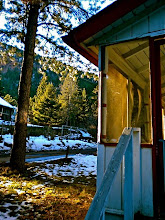Ages 16-up

Forget everything you think you know about vampires. Forget handsome, brooding, pale young men who sparkle in the sunlight. Forget pale guys with widow’s peaks and foreign accents. Forget emaciated, alien-like creatures with bloated bellies from drinking the blood of dying men.
Instead, picture an overweight, sweaty, horny, fifteen-year-old comic book fanatic who happened to be in the wrong place at the wrong time while on vacation in the Poconos.
Since being bitten, Doug Lee has been struggling to figure out how to survive as a vampire. The thought of attacking helpless young women and drinking their blood is unappealing to him, so he makes do with drinking cows’ blood while searching for a goth chick who may be into the whole vampire vibe. His best friend, Jay, is in on the secret and between the two of them they begin to search for a solution to Douglas’ sustenance problem.
Enter Sejal, a beautiful Indian foreign exchange student with a secret of her own. Doug becomes obsessed with her and determines to make her his girlfriend, or his lunch…
Meanwhile, he’s trying to fly under the radar because he got caught on camera at the zoo trying to suck the blood of a panda, and now the basic cable show Vampire Hunters is trying to hunt him down to boost ratings and keep their failing program on the air.
Doug is an honestly written character who experiences the struggles of a typical teenager: low self-esteem and lack of success with the opposite sex. But while Doug is a typical teenager, he is a typical teenager who is stuck in time—he will never grow older, will never mature, and that makes it difficult to appreciate his sometimes homophobic, self-centered nature. The way he treats his friends is appalling, especially as he begins to come into his own as a vampire. However, Doug’s attempts to figure out how to survive as a teenage vampire makes for a compelling story. Told with macabre humor, this book gleefully pokes fun at the currently popular vampire genre.
Caveats: Bad language (including multiple f-bombs), Doug is a homophobic character and uses some bigoted slurs, references to sex, the teens end up at the raunchy Rocky Horror Picture Show.
Possible discussion topics: Relationships, friendships, Internet addiction, and portrayals of vampires in fiction.
Here are some discussion questions to get you started:
1. A character makes the statement: “I think sometimes you think you’re the hero of the story, and sometimes you think you’re the victim. But you’re not either.” (Pg. 2.) What do you think is meant by this? Do you think Doug is the hero or the victim? Or is he something else? What does it mean that this particular character said this?
2. Considering the current popularity of vampires in fiction, this is a unique portrayal of a teenage vampire. What do you think of this book’s depiction of vampires? Do you like it? Or would you rather have a “traditional” type of vampire?
3. Sejal tells people that she has “The Google.” Do you buy this as a genuine affliction? Why or why not? When does time spent on the Internet become dangerous?
4. While there are aspects of Doug’s character that are appealing, he is frequently an unlikable character. He treats Jay poorly. Once he gets a girlfriend he treats her poorly. Is there anything positive you can see about him? Did you like him or not? Is he redeemed in the end?
5. Sejal thinks at one point, that Doug might be her reflection: “There was something familiar about his eyes, his look of distraction. He was lost, maybe missing something, like she was. Perhaps he’d left his heart someplace, too.” (Pg 111.) Is Doug her emotional counterpart? How is his vampirism akin to the form of her Internet addiction?
6.What do you think happened to Doug at the end of the book? What should have happened to him? Is this a good ending?
If you liked this book you might enjoy: The Absolutely True Diary of a Part-Time Indian by Sherman Alexie, Thirsty by M. T. Anderson, Going Bovine by Libba Bray, Ananzi Boys by Neil Gaiman, Sweetblood by Pete Hautman and Brooke Williams





